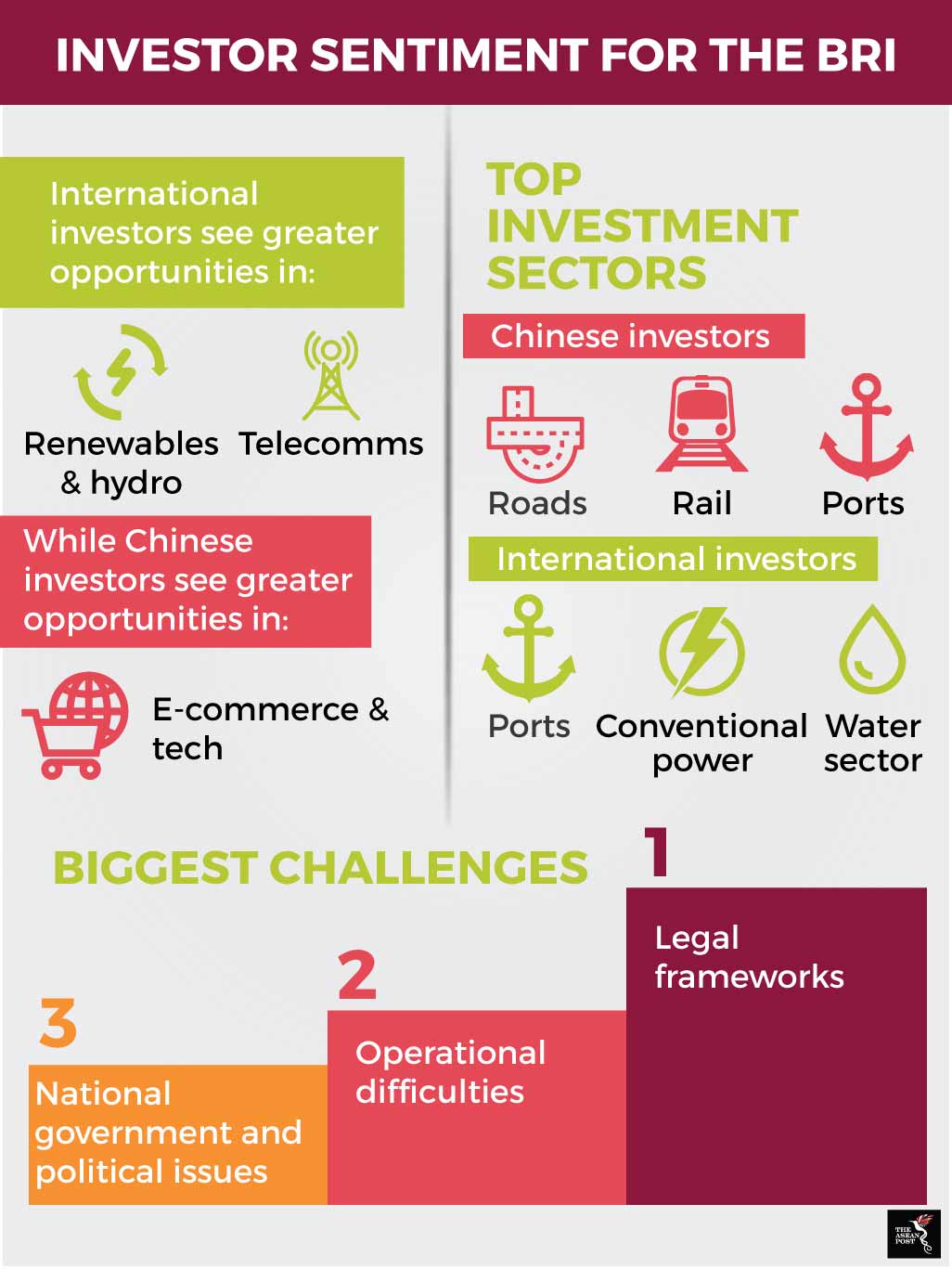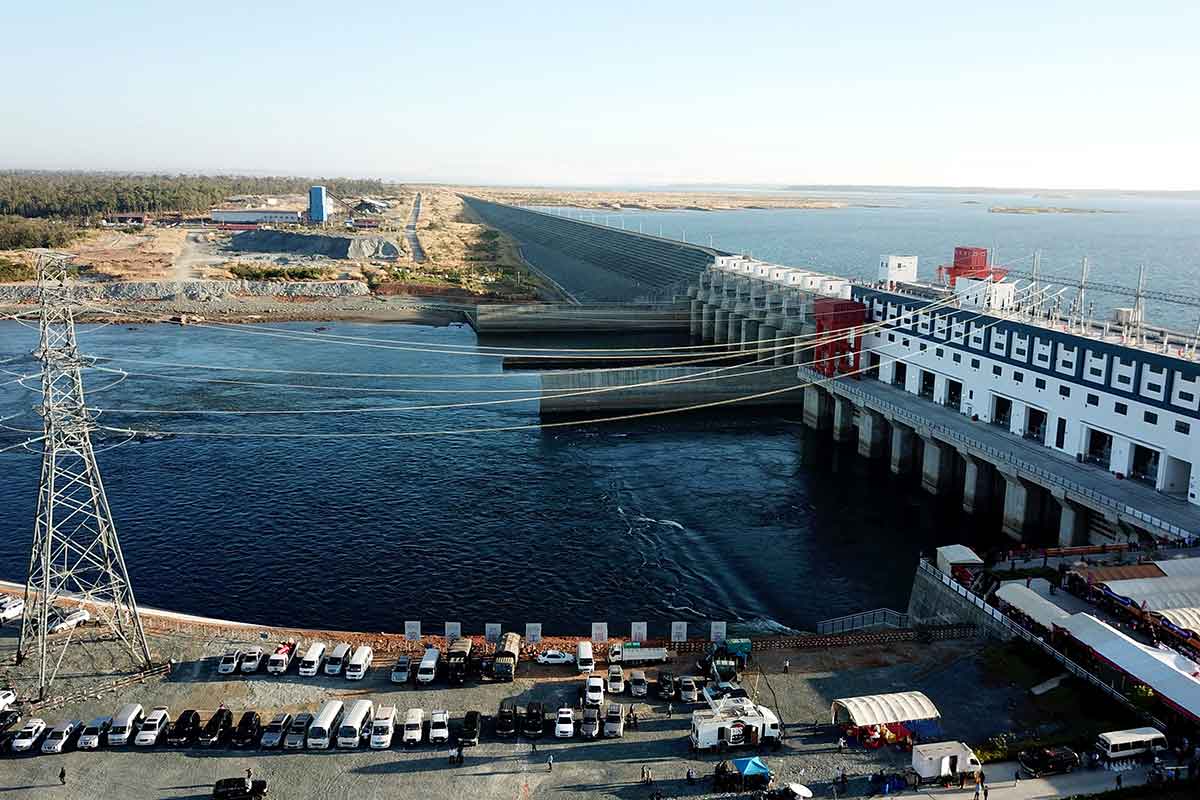The ongoing Belt and Road Initiative (BRI) that’s taking place all over the world has got investors excited. A survey by London-based international tax and law firm, CMS, reveals that there is a growing sense of confidence among Chinese and international investors about the future of the BRI.
Titled “Above and beyond: Belt and Road Initiative investment and risk outlook”, the study surveyed over 100 senior executives – 60 from non-Chinese multinational corporations (MNC) and 40 from Chinese state-owned enterprises (SOE) and privately-owned corporations – to gauge their views on investing opportunities and risks in the year ahead in countries along the trade corridors of the Belt and Road Initiative (BRI).
The survey revealed positivity toward deal sourcing and overall increasing investment in BRI projects, as well as further involvement from international participants. 23 percent of investors expect it to become easier to identify and source BRI investment opportunities in the year ahead as opposed to only five percent now.
The shifting attitudes towards the BRI is likely due to the previous perception that projects under the initiative needed Chinese capital or required a Chinese partner to happen. However, the understanding among investors now is that BRI projects do not require a Chinese partner, support or approvals from the Chinese government. More investors however show interest in the soft infrastructure aspects of the BRI such as IT services instead of the heavy projects such as building highways, airports and railways. This could also be due to the extra regulations that are usually present in such projects.
Many investors are also saying that MNC’s are likely to play a major role in the BRI. Their role is expected to be mostly joint partnerships as they build ties with Chinese investors. This approach is seen as a win-win as it helps mitigate risks on both sides as well as bring various project experience to help navigate the many potential challenges of the BRI.
In fact, many MNCs are already cashing in on the BRI. For instance, General Electric increased its BRI order book from approximately US$400 million in 2014 to US$2.3 billion in 2016 and is expected to further jump to US$7 billion. Likewise, the CMS study also shows that Caterpillar is reaping revenue by meeting the demand for construction equipment while financial institutions such as Citibank and Zurich have also increased their participation in BRI projects.
 Source: Various
Source: Various
Not too keen
While investors are feeling upbeat over China’s ambitious projects, on the flip side, some governments and their people are not too keen about the prospects of the BRI. The biggest example is Malaysia’s newly elected Prime Minister Mahathir Mohamed who once warned against “a new version of colonialism” in reference to China’s growing economic and political influence. Ever since winning in the country’s 14th general elections, Mahathir was adamant on cancelling or at least renegotiating the Malaysian government’s deal with China for the East Coast Rail Link (ECRL) project. Latest developments have shown that China is willing to reduce the US$20 billion price tag of the project.
Similarly, in Myanmar, China had to scale-down one of its projects after Aung San Suu Kyi deemed the price tag associated with the Kyaukphyu Special Economic Zone as “absurd”. The initial cost of US$7.3 billion to construct the port was negotiated down to US$1.3 billion.
A number of governments are starting to become more aware of the risks of spending too much on infrastructure. These infrastructures risk becoming white elephants and could in turn lead to these governments owing massive debts.
The distrust towards the Chinese government is also echoed by many in the region. In a survey titled The State of Southeast Asia: 2019 by think-tank ISEAS -Yusof Ishak Institute, 70 percent of respondents answered that the government should be “cautious to avoid getting into unsustainable financial debts with China.” The majority of the respondents also have either little or no confidence (16 percent) that China will “do the right thing” in contributing to global peace, security, prosperity and governance.
While investors may be upbeat about the future of the BRI, they have to stay abreast of developments as their investments could be affected by a sudden cancellation or scaling back as is the case in Myanmar and Malaysia.
Related articles:
China’s BRI negatively impacting the environment
